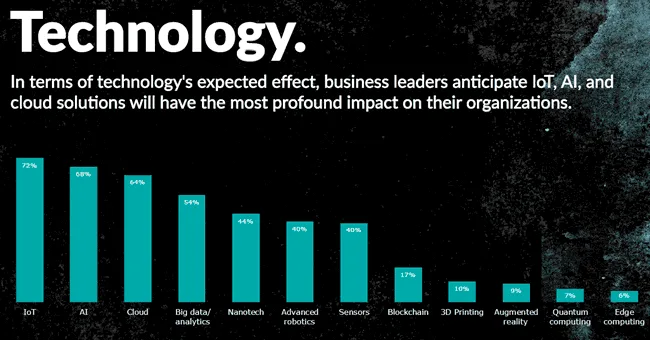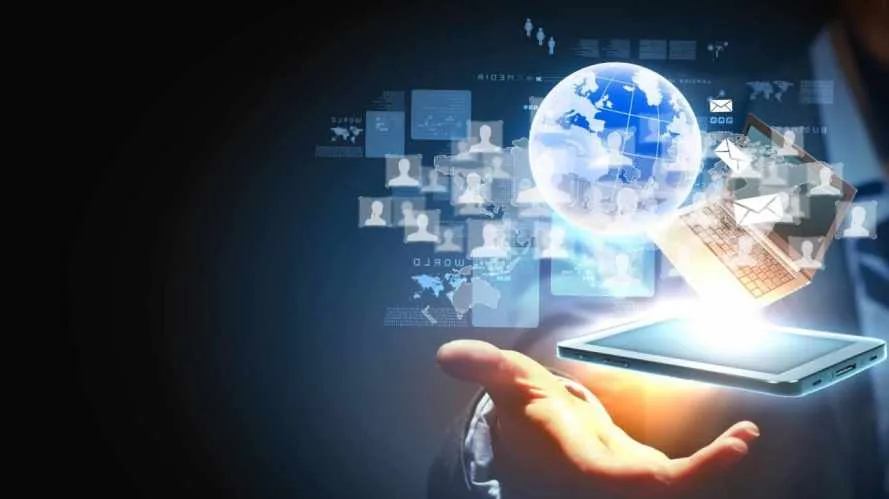The impact of technology is all around us. From the rise of smart cities to the prevalence of self-driving cars, the world has changed a lot in the past few years.
We rely on technology to improve our lives. Many businesses are embracing technology to reduce their carbon footprints, reduce waste, and optimise energy use.
With the Internet of Things, cities can minimise their waste collection costs and carbon emissions by using technology. While face-to-face interactions are still the most effective way to communicate with others, technological advancements have changed the way we live and work.
People have made great use of technological tools to better understand other civilizations, improve their communication skills, and meet people all over the world. Socially, these technologies have helped preserve familial ties and keep people in touch with society.
Some of the benefits of technology include making our lives easier, but some aspects have negative effects. Despite the positive effects of technological advances, we should not be surprised to learn that these tools can make our relationships hollow.

The Tech Revolution: A Glimpse Into 2024s Trends
In a study conducted by the Institute of Electrical and Electronics Engineers (IEEE), global technology leaders have weighed in on the technological landscape of 2024.
The insights reveal a fascinating glimpse into the future, indicating that five key areas will undergo significant transformation, shaping the way we live, work, and connect with the world around us.
- Cloud Computing (40%): Nurturing the Digital Sky
- Cloud computing takes the lead as the most influential technology of 2024. With 40% of surveyed leaders acknowledging its impact, it’s clear that the digital sky is the limit. As businesses increasingly migrate to the cloud, the seamless accessibility of data and applications is poised to revolutionise the way we operate in the digital sphere.
- Cloud computing takes the lead as the most influential technology of 2024. With 40% of surveyed leaders acknowledging its impact, it’s clear that the digital sky is the limit. As businesses increasingly migrate to the cloud, the seamless accessibility of data and applications is poised to revolutionise the way we operate in the digital sphere.
- 5G (38%): Connecting at the Speed of Thought
- The advent of 5G technology promises to catapult connectivity to unprecedented heights, with 38% of respondents recognising its pivotal role. As we inch closer to a world where data moves at the speed of thought, the implications for industries, from healthcare to entertainment, are nothing short of revolutionary.
- The advent of 5G technology promises to catapult connectivity to unprecedented heights, with 38% of respondents recognising its pivotal role. As we inch closer to a world where data moves at the speed of thought, the implications for industries, from healthcare to entertainment, are nothing short of revolutionary.
- Metaverse (37%): Bridging Realities for a New Frontier
- Stepping into the realm of science fiction, the metaverse captures the imagination of 37% of tech leaders. This digital frontier, blending virtual and augmented realities, is set to redefine how we interact with information and each other. Brace yourselves for a future where the lines between physical and digital realities blur.
- Stepping into the realm of science fiction, the metaverse captures the imagination of 37% of tech leaders. This digital frontier, blending virtual and augmented realities, is set to redefine how we interact with information and each other. Brace yourselves for a future where the lines between physical and digital realities blur.
- Electric Vehicles (EVs) (35%): Driving Sustainability Forward
- Sustainability takes the wheel as electric vehicles claim the fourth spot on the list, with 35% of respondents emphasising their impact. The rise of EVs not only signals a shift towards eco-friendly transportation but also underscores the growing importance of clean energy in combating climate change.
- Sustainability takes the wheel as electric vehicles claim the fourth spot on the list, with 35% of respondents emphasising their impact. The rise of EVs not only signals a shift towards eco-friendly transportation but also underscores the growing importance of clean energy in combating climate change.
- Industrial Internet of Things (IIoT) (33%): Transforming Industries at the Core
- At the heart of technological evolution lies the Industrial Internet of Things (IIoT), acknowledged by 33% of leaders. This interconnected web of devices and systems promises to streamline processes across industries, boosting efficiency and ushering in a new era of smart manufacturing and production.
As we navigate the dynamic landscape of 2024, it’s evident that these five technological pillars will play a crucial role in shaping our future. From the seamless integration of cloud computing to the immersive experiences offered by the metaverse, each trend invites us to embrace a new era of possibilities
The Impact Of Technology On Society
The impact of technology on society can be divided into good and bad. On one hand, technology has increased our connectivity and ability to communicate with others. On the other hand, our digital life can erode our sense of self and our ability to understand others.
It can also damage our faith in institutions. In addition, it can take up all of our time and attention, causing us to feel disconnected and less social. In general, technology is beneficial for society. However, it can cause problems as well.
Over the past 2-3 decades, technology has become more and more a part of our daily life, to the point that it has invaded our lives. Take a moment, stop reading this article, and look around. What do you notice ? Do you see the technology, the gadgets, the computers, the video surveillance?
Notice how our lives are surrounded by gadgets and technological devices. The PC at your desk, the cell phone next to your bed, the WiFi router, even your thermostat – all are examples of how technology has transformed every aspect of our lives; some for good and some may not be so good
Technological Influence on society.
Technology affects the way people communicate, learn and think. It helps society and determines how people interact with each other on a daily basis. Technology plays an important role in today’s society. It has positive and negative effects on the world and it impacts everyday life.
We live in an age where technological advancements are common. The Internet and cell phones are just a few examples. However, with advancements in technology, there is a downside to all of this.
One aspect of technology that has had a major impact on society is how it affects learning. It’s made learning more interactive and collaborative, which helps people to better engage with the material they’re learning and having issues with.
Plus, you get better access to resources. With the creation of the internet, it gives us access to information at a rate of twenty-four hours and you have access to almost everything online. In addition, it allows students to do the work more easily.
Students can respond to quizzes and exams more easily, and the fact that teachers can teach classes online can be very effective. It also expands the boundaries of the classroom, encouraging individualised learning.
People can access learning through YouTube and social media. This helps students learn better than sitting down to lectures and reading textbooks. These technological advances have made learning more fun and convenient.
The Smartphone Revolution
A little over ten years ago, cellular phones were primarily used for calling and texting. Today, the uses of mobile phones are very varied.
Phones do everything from taking high-resolution photos and watching pixel-perfect videos, surfing the Internet, gaming graphics-intensive and monitoring your movements. It is amazing how this small device can handle demanding tasks besides meeting basic communication needs.
The advent of smartphones has greatly simplified our lives. People now connect more frequently and easily with loved ones through video calls and instant messaging services. Tasks like creating slides, reading emails and creating documents no longer require a PC.
In short, smartphones and apps have changed the way we work, communicate and play. Moreover, the meteoric expansion of e-commerce and internet businesses is directly proportional to the rapid proliferation of smartphones.
Robotics – Artificial Intelligence – Digital Twins
Advances made by the scientific and engineering community have transformed artificial intelligence (AI) and robotics from science fiction to reality. Although we do not have robots similar to those depicted in the movies, intelligent machines are now part of our daily life.
Think advanced drones capable of surveillance, tracking, and offensive measures – aren’t these machines highly intelligent robots? What about automated assembly lines in industrial plants that can handle the production and packaging of goods on their own?
While the concept of robotics and AI sounds exciting, it’s not without its flaws. Many people believe that implementing robotics and AI will lead to mass layoffs and unemployment.
We’ve already seen how factory workers lost their jobs when automated assembly lines were introduced. Now, with driverless cars, smart chatbots and more knocking on doors, it can be that drivers and customer support agents have difficulty keeping their jobs.
Even sophisticated machines that can operate with minimal human intervention are sophisticated robots. Driverless cars are another example of artificial intelligence and robotics. With tech giants like Google, Tesla and BMW involved in self-driving car manufacturing, it looks like we’ll be seeing self-driving cars sooner than we expected.
AI has become an integral part of our lives, and it’s no surprise that a staggering 98% of survey participants believe that, in 2023 and beyond, AI-powered autonomous software, collaborative tools, and mobile robots will take charge of automating various processes and tasks, such as data analysis. This automation is expected to enhance human efficiency and effectiveness.
When questioned about the impact of AI-driven software on jobs across the global economy in 2023, 24% of technologists foresee a 1–25% augmentation, 40% expect a 26–50% increase, and 27% anticipate a significant 51–75% enhancement.
In the realm of the Industrial Internet of Things (IIoT), which optimises smart industrial machinery, sensors, processors, and real-time data, a resounding 98% of respondents believe that leveraging digital twin technology and virtual simulations in 2024 will be crucial for more efficient design, development, and secure testing of product prototypes and manufacturing processes. Among them, 68% emphasise that this will be very important.
Education
In the educational field, the impact of technology is largely positive. It has made learning more interactive and collaborative, and it has improved access to resources. Through the Internet, students can get work done even when they’re not in school.
Impact of Digital Technologies
Digital technologies have progressed faster than any innovation in our history, reaching around 50% of the population of the developing world in just two decades and transforming societies. By improving connectivity, financial inclusion, access to commerce and public services, technology can be a great equalizer.
In the health sector, for example, AI-enabled frontier technologies are helping to save lives, diagnose disease and extend life expectancy.
In education, virtual learning environments and distance learning have opened programs to students who would otherwise be excluded. Public services are also becoming more accessible and responsible through blockchain-based systems and less bureaucratically bureaucratic thanks to AI assistance. Big data can also support more responsive and accurate policies and programs.
Technological Revolutions
Throughout history, technological revolutions have changed the workforce: creating new forms and patterns of work, making others obsolete, and leading to broader social change. This current wave of change is likely to have profound impacts.
For example, the International Labor Organisation estimates that shifting to a greener economy could create 24 million new jobs worldwide by 2030 through the adoption of sustainable practices in the energy sector, the use of electric vehicles and increasing energy efficiency in existing and future buildings.
Today, digital technologies like data pooling and AI are used to track and diagnose problems in agriculture, health and the environment, or to do daily tasks like navigating traffic or paying a bill.
They can be used to defend and exercise human rights – but they can also be used to violate them, for example by monitoring our movements, purchases, conversations and behaviour. Governments and corporations increasingly have the tools to discover and use data for financial and other purposes.
However, personal data would become an asset to an individual if there was a formula for better regulation of ownership of personal data. Data-driven technology has the potential to empower individuals, improve people’s well-being, and promote universal rights, depending on the type of protection.
Technological Innovation
Technological innovations have a huge impact on society, and there is a debate as to whether these changes are beneficial. In most countries, however, tech is used to cut costs and streamline office work.
Instead of having two or three people doing the same job, one person can complete the same task with the same quality of work in half the time. This helps increase business profits and decrease employment rates. Similarly, technological innovations in the health industry have greatly helped the public
Communication
Technology has changed how people communicate. New tools for communication have been created, such as email, video conferencing, and social networking. This has also led to an improvement in access to educational resources. The internet has made it possible for students to do their work anytime, anywhere.
Impact On The Economy
One of the biggest impacts of technology on the economy is the increase in productivity. With a higher level of output, companies can reduce their costs and increase profits.
These improvements in productivity will increase wages for workers, thereby improving the quality of life for everyone. In turn, the increased output will make consumers more willing to pay higher prices.
The impact of technology on the economy is huge. It affects the entire economic system. New technologies have made business operations much more efficient. For example, computers and other gadgets have eliminated the need for labor in print media. Some businesses are being forced to cease their operations and shift the scope of their business
New technologies such as 5G telecommunications, autonomous vehicles, and mRNA-based medicines and vaccines have the potential to shape our future. The anticipation of its impact may already be affecting the economy today.
A whopping 95% of tech enthusiasts worldwide believe that space satellites for mobile connectivity will revolutionise the game back in 2023. The satellites make it possible for 5G devices to connect anywhere, round the clock, surpassing the limitations of land-based infrastructure.
Nearly nine out of ten tech enthusiasts (88%) are on board with the idea that 6G will be a continually evolving project, with standardisation expected to be achieved within the next five years.
Technological Advancements
Technological advancements have improved operations and cut costs. Today, just one technician can operate an entire manufacturing plant. Innovative inventory systems can supply needed parts in a short time.
Further, the impact of technology has boosted the economic growth of the country. The effect of technology is not just local. The benefits of technological advancements are felt throughout the social system. A small-scale business can operate with very few employees. In a big corporation, the technology is an asset to increase profits.
Technological Developments
Technological development has increased productivity. A simple example is how electronic monitoring equipment helps a hospital monitor a patient. If a doctor can use this technology to monitor a patient, he or she will be more productive. The productivity of a company is a good indicator for economic growth. Its productivity levels are increasing, which increases the demand for more technology. A large number of workers can be more productive than they were in the past.
Automation
Similarly, automation has increased the output of labor. In a capitalist society, the amount of output that a company can produce increases the real wages of its employees. This in turn means higher wages for workers, reducing the need for new workers. A growing society is highly dependent on technological advances and makes them more profitable. It also boosts the quality of life of society. This is the key to the success of a capitalist enterprise.
How Fast Is Technology Growing?
The rapid development and adoption of breakthrough technologies are changing how we interact with each other as well as with the outside world.
Facts.
- 40% of the world’s population has access to the internet.
- 90% of the world’s data was generated within the past two years alone.
- Only 8% of US households owned a personal computer in 1984.
- 5 billion people in the world own a mobile device.
- 2.65 billion people in the world use social media.
- 1 in every 5 Americans is smartphone-dependent.
- Mobile banking adoption will produce 95 million jobs.
As our how fast is technology growing statistics clearly show, technology is advancing at a rapid pace. To remain competitive in this ever-changing landscape, businesses must up their game.
The Overuse Of Technology
The overuse of technology also results in a reduction in social interactions. While it is great for boosting communication and relationships, it can also have a negative effect. As a result, many people have a hard time interacting with other people.
The overuse of technology has also affected mental health and relationships. This is why it’s important to limit the use of modern technology in certain instances.
The Negative Impact On Children
Children’s brains are still developing and may be more sensitive to the effects of technology and its overuse than adult brains.
Children who overuse technology may be more likely to experience issues, including
- low academic performance
- lack of attention
- low creativity
- delays in language development
- delays in social and emotional development
- physical inactivity and obesity
- social issues
- aggressive behaviours
- addiction to these technologies
- higher BMI
- poor sleep quality
- anxiety
10 Advantages Of Technology
- 1. Ease of Access to Information
- 2. Saves Time
- 3. Ease of Mobility
- 4. Better Communication Means
- 5. Cost Efficiency
- 6. Innovation In Many Fields
- 7. Improved Banking
- 8. Better Learning Techniques
- 9. Disable-d, Are Now Able-d
- 10. Artificial Intelligence
Despite all the benefits, the impact of technology on society is not as rosy as we might like it to be. Although people can still get out and do certain tasks without the use of technology, the younger generation uses technology for virtually everything. It’s easy to get lost in social media and web gateways, and children are increasingly glued to their mobile devices







